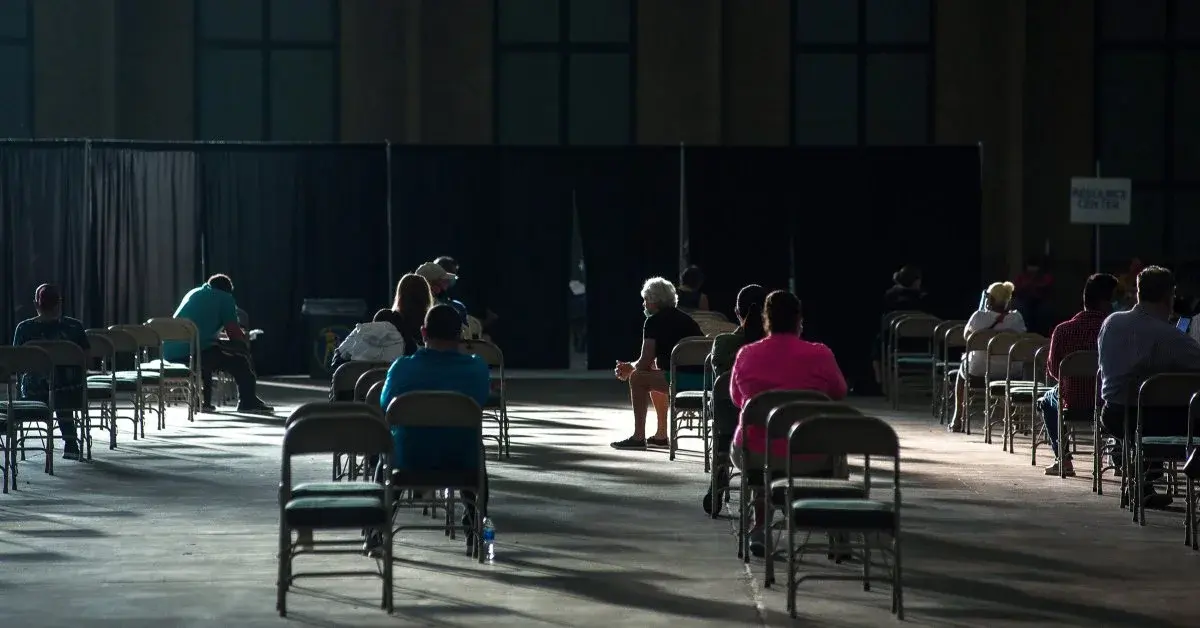If 90% are not able to vote for parties that tax the 1%, then democracy doesn’t work. What has to change?
Or 90% know that they don’t care about investing money and prefer to leave that decision to the 1%.
“Democracy cannot succeed unless those who express their choice are prepared to choose wisely. The real safeguard of democracy, therefore, is education.”
- Franklin D. Roosevelt
Which explains why education funds are pretty much always gutted by certain groups in the US.
Easier to keep people scared when you don’t let them learn about what they’re afraid of in the first place
50% of the 90% are convinced that the party of the 1% has their best interests at heart and really care about identity politics.
I’ll let you try and figure out which party that is.
Not only that, but 50% of the 90% are absolutely, completely convinced that they are on the very cusp of being the 1%. It’ll happen tomorrow. Or next week. Maybe next month. Or, look, by next year at the very latest. And when they get to be the top 1% through all their hard work, they don’t want the government to take it all away, since they know that they earned it honestly and will therefore deserve to keep it.
They are never going to be millionaires, but they believe if they just put in a couple more extra hours of work, then they will be.
It’s closer to 30% I believe.
Closer to 30% of people willing to participate in polls even. We have a media apparatus which platforms and empowers these people, but they are absolutely overrepresented in the national consciousness. Since we tend to recall these inflammatory voices more than the more common people mainly minding their own business wanting to live and let live, it can appear that half the country are psychopathic when there is not sufficient objective evidence to support that perception. I agree there are too many people in the Q anon camp and this group of religious fascists is causing all of us tons of problems, but most people are not that unreasonable.
That and you can be way more energetic living in a fantasy land in which you’re a hero than trying to realistically address the myriad issues which exist in the world which can be overwhelming and exhausting. We weren’t built for this.
Which of the two parties you have to choose from in the US would actually change that?
Wow, can’t wait for this article again in another 4 years when nothing changes but with different figures because this is now like the 4,234,34234,234,323 time this has been posted
Well the article is from 2020, so you don’t have much longer to wait!
So, taxing the rich and multinational companies fairly is a matter of national security, eh? Take note, all my favourite 3-letter agencies!
Since when does the Rand corporation publish research focusing on income inequality?
Maybe they realized they’re closer to the 90%
🤖 I’m a bot that provides automatic summaries for articles:
Click here to see the summary
It is no surprise then, according to the CDC, that COVID-19 inflicts “a disproportionate burden of illness and death among racial and ethnic minority groups.” But imagine how much safer, healthier, and empowered all American workers might be if that $50 trillion had been paid out in wages instead of being funneled into corporate profits and the offshore accounts of the super-rich.
According to Oren Cass, executive director of the conservative think tank American Compass, the median male worker needed 30 weeks of income in 1985 to pay for housing, healthcare, transportation, and education for his family.
Two-income families are now working twice the hours to maintain a shrinking share of the pie, while struggling to pay housing, healthcare, education, childcare, and transportations costs that have grown at two to three times the rate of inflation.
For even had our political leaders done everything right in the moment, our response to the pandemic would still have been mired in the footprint of extreme inequality: a $50 trillion upward redistribution of wealth and income—$297,000 per household—that has left our families, our economy, and our democracy far less capable of fighting this virus than in other advanced nations.
This is an America that recklessly rushed to reopen its economy in the midst of a deadly pandemic because businesses were too fragile to survive an extended closure and workers too powerless and impoverished to defy the call back to work.
For example, imagine an AARP for all working Americans, relentlessly dedicated to both raising wages and reducing the cost of thriving—a mass membership organization so large and so powerful that our political leaders won’t dare to look the other way.
Saved 93% of original text.
No, You didn’t save 93% of the* original text BroBot. The article is wayyy longer than that.
Try again.
I’ve always understood that Saved 93% implies that it saved you from having to see 93%, here’s 7%.
Oh. You know what; You might be right 👍
Pls be nice to bot, they tried
How’d they do it?
The simple answer:
The poor pay for goods and services they need to survive, which are provided by the rich.
The rich make massive profits on this, which they then avoid paying taxes on (which would normally cycle the money back into the hands of the poor).
The wealth is gradually accumulated in the hands of a few, who hoard it rather than use it.
This is why trickle down economics doesn’t work.
Well that doesn’t add up. Hoarding wealth would imply saving dollars in the bank. But that doesn’t actually store the wealth, they’d have to buy things that don’t devalue, or in other words, invest. Investing is paying people to do things that will be profitable to you, or in other words, use it. Obviously thats not what’s going on, or you wouldn’t have an unusually high a concentration of wealth. There’s got to be more to the story than this.
What’s the non simple answer?
Investing is not only paying people to do things that are profitable to you (in fact, there’s evidence that this form of investing is on the decline.) It’s also paying for things that generate passive income (ie, you spend nothing and do nothing, but continue to get more money coming in). Housing is a really good example of this. So are stocks and shares, where the owner is basically paid dividends every year just for owning them, not for actually doing anything. The fact that this generates so much wealth for the rich, which is not taxed effectively (or at all in some cases), makes it more appealing than investing in paying people to do things that are profitable: investing in a company comes with a risk that the company might fail and you might actually lose wealth. Investing in housing, though? Well, short of natural disasters that destroy them (which is rare), that wealth will always have value, will always increase in value, and will always generate almost zero-risk income.
This is actually how most wealth is hoarded: not as dollars, but as other capital that has value and can continuously earn income just from being owned. This rent-seeking behaviour also contributes to inequality, because it diverts wealth from the poor to the rich, which is then reinvested into more assets that can be rented out. And so on, and so forth. All these forms of wealth, being not money, have enormous tax loopholes that allow their owners to earn income from them without paying tax, which would otherwise cycle back around to the poor through being spent on public services.
And then there’s the impact on productivity caused by a lack of investment in paying people to do profitable things. When nobody invests in companies, employees, equipment, etc, the amount of wealth generated per person stagnates. This causes wages to stagnate, under the basis of “well you’re not making me any more money, so why should I pay you more?” The cost of essentials, like housing, continues to climb, because the wealthy have bought all the houses and rent them out to the poor at ever-increasing prices. So again, this diverts money away from the poor, away from society as a whole, and into the hands of a few… who will then only use it to generate even more passive income. If they actually spent it on paying people to do things (ie, investing in smaller businesses, start-ups, employee training, etc), there’d be an argument that trickle down economics could work, because the wealth taken by the 1% would cycle back around by being spent. But we have solid proof that this is not what happens. The wealthy want a passive income with zero risk and zero work, whereas investing in paying people to do things requires both risk and work.
Every time you hear the wealthy saying that the poor are lazy and feckless, and that social security just encourages people to be idle, remember this: it’s a projection. The wealthy are the ones who want to earn unlimited money based on other people doing all the work. They’re the parasites sucking the lifeblood out of society, not the sick, the homeless, the single mothers, the immigrants, or anyone else that “doesn’t deserve” enough money to live.
Edit: Typos.
I’m with you on most of that. But I think the problem is more fundamental: the money devalues at a rate of 2-5% a year.
Think about it. Why wouldn’t the wealthy just hoard money? Because you can’t just hoard money. It devalues. You have to monetize other assets. So they buy real estate, with money they made from you when prices go up but your wages haven’t gone up yet. They benefit from the cantillion effect and in the process siphon wealth from the bottom. and as they accumulate non-money assets, that effect compounds because the prices go up some more. The wealth gap, all of this, it stems directly from our inflationary monetary system. Their trick is that they get to fuck with the money.
Neoliberalism.
The link cites it’s source, maybe look into it?
God damn I’m just trying to learn dude. Do you come here for discussion or just to be an asshole?
I’m not trying to be an asshole. Read the article, and if you want to learn more, like I said, the article cites the research underpinning it.
You aren’t trying hard enough to learn if you just ask questions in the comments, either way.
I don’t just want to learn what the article says, I want to learn what people think. That’s why I’m using a network designed for discussion and not just, say, an RSS feed.
Well like your discussing with the other person, it’s not just one method.
But rather it’s a system where wealth begets wealth. In aggregate, in many industries, during something like a pandemic or very high inflation, they have levers at their disposal to increase their profits. It’s that simple.
For people who invested in real estate? It’s forcing people back to work. For people who own retailers, distributors and manufacturers, it’s increasing prices and keeping wages flat. Others buy up faltering businesses and create monopolies.








